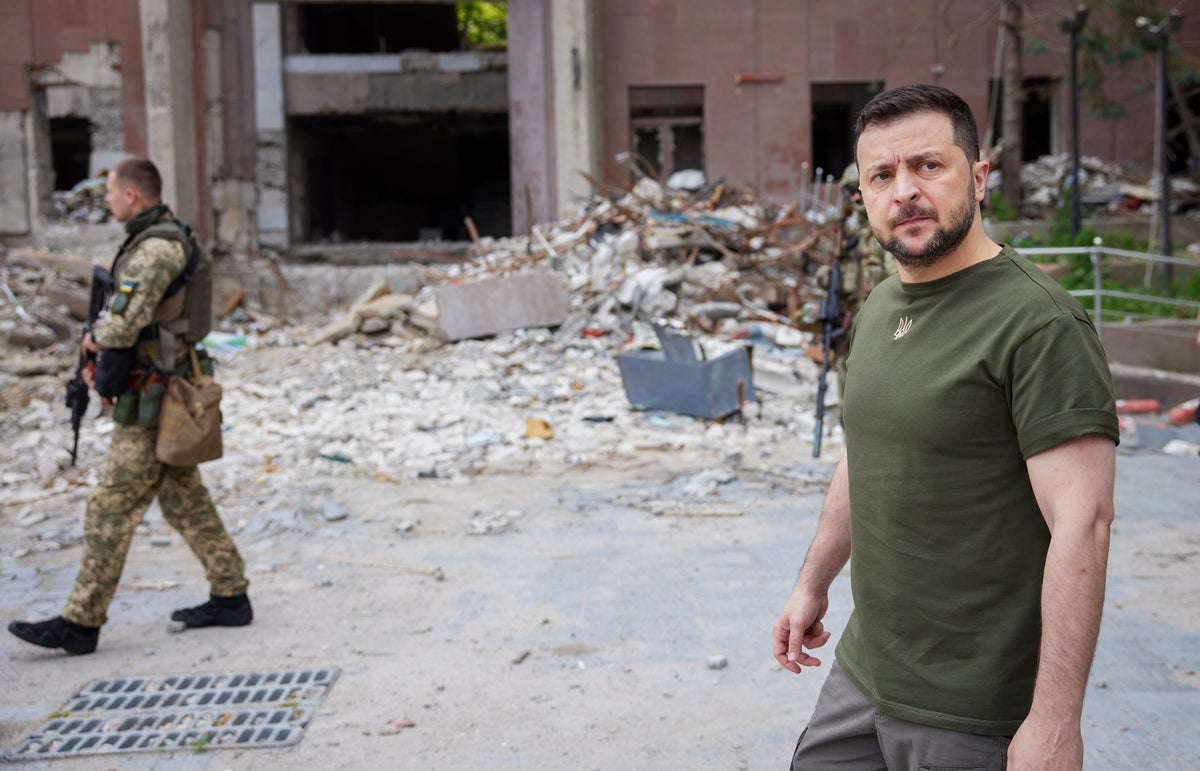
Two British men captured by Russian forces in separatist-held Ukraine have been charged with being mercenaries, Russian media has said.
Aid worker Dylan Healy, 22, was stopped at a checkpoint earlier this year while helping a woman and children to flee a battle zone in Russian-backed territory, according to an aid charity.
Andrew Hill, a military volunteer who was detained in the Mykolaiv region around the same time, was shown in camouflage gear on Russian state television.
A source in the power structures of the self-proclaimed Donetsk People’s Republic said investigators had filed charges of carrying out “mercenary activities” against both men, according to Tass.
It claimed both men were refusing to cooperate with the investigation.
In a video shown on Russian television in April, a man speaking with an English accent appeared to give his name as Andrew Hill from Plymouth.
His arm was in a sling, a bandage was around his head, and blood was seen on his hand.
Russia’s defence ministry said he had surrendered to Russian troops and had been carrying a weapon.

Mr Healy, from Cambridgeshire, and another aid volunteer, Paul Urey, 45, from Manchester, were both captured in an operation south of Zaporizhzhia in April.
A pro-Kremlin website said Mr Healy and Mr Hill would face the same mercenary charges as Aiden Aslin and Shaun Pinner, two British military volunteers captured in Mariupol who have been condemned to death by a Donetsk court.
Mr Pinner, 48, originally from Watford, has appealed against his sentence, Tass said.
He is said to have moved to Ukraine several years ago with his wife, and later joined the country’s armed forces.
Ukrainian officials have previously said they will seek to involve Mr Aslin and Mr Pinner in a prisoner swap.

An updated criminal code for the self-proclaimed Donetsk People’s Republic (DPR), which took effect on Friday, says the death penalty will start being used from 2025.
It is unclear what this means for the captured men. The DPR has had capital punishment on its statutes since 2014, but had no legislation outlining how to enforce it until now.







